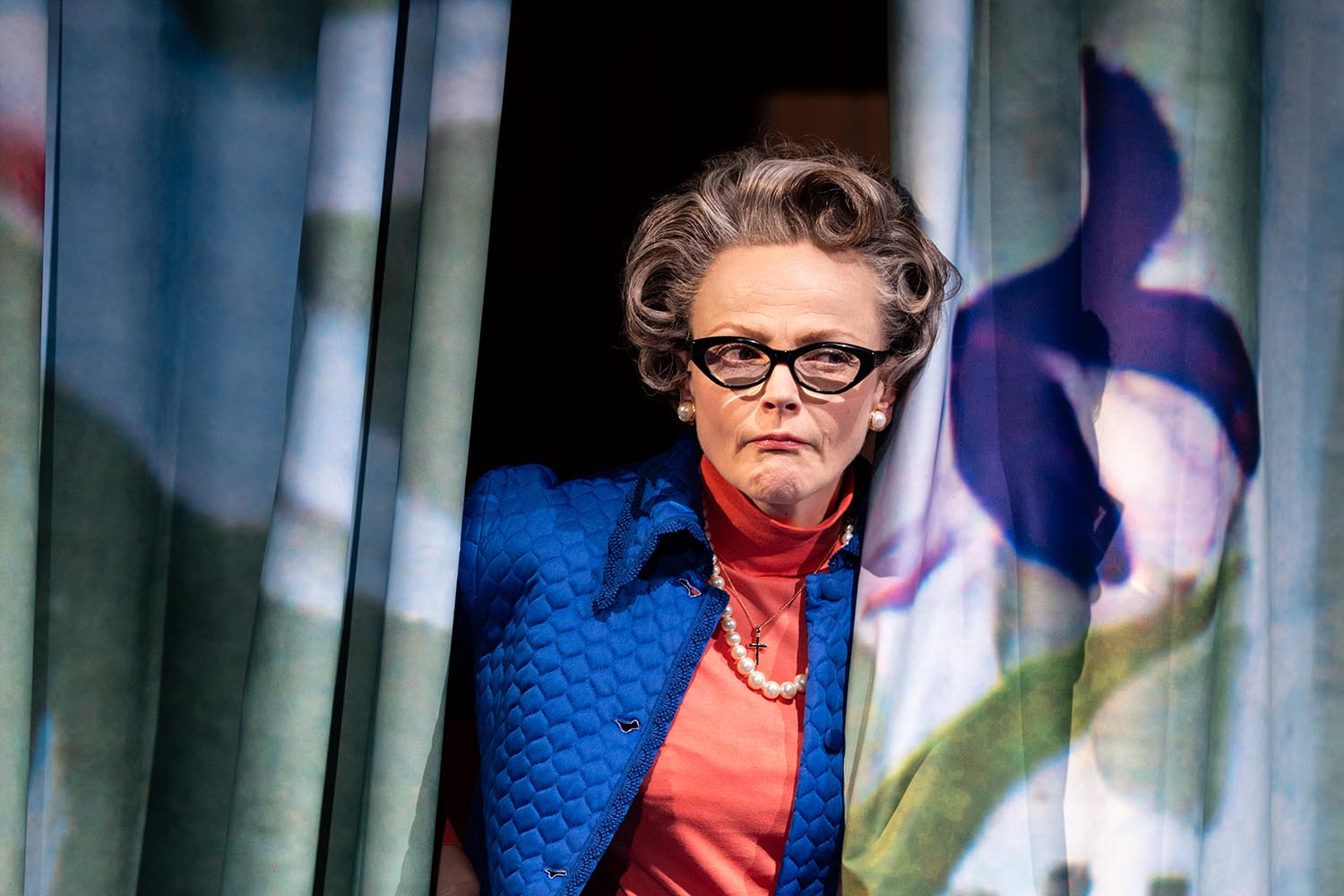In the public mind, the Christian, conservative teacher turned activist Mary Whitehouse is probably remembered, if at all, for her attempts, in the second half of the last century, to stem what she saw as a decline in public morals (Cliff Richard, Lord Longford and Malcolm Muggeridge were among the thousands who publicly shared many of her views). Broadcasting and entertainment were frequent targets, in particular the BBC, which rebuffed or ignored her typewritten protests (while leaving Jimmy Savile at large on its premises). Whitehouse’s achievements, less well known, include having helped to bring about legislation to protect children from pornography and exploitation.
As part of her moral crusade, she castigated homosexuality as sinful, causing great pain to many. This is the focus of a new two-hander by Caroline Bird, in which Maxine Peake plays Whitehouse and Samuel Barnett everyone else (more than 15 roles, including Margaret Thatcher, a Roman centurion, Jesus and the Guardian journalist Jill Tweedie).
Under Sarah Frankcom’s direction, the pair power through almost 30 scenes (varying in style from fitfully funny revue sketches to moving mini dramas) with terrific charm, energy and skill. Peake remains on stage throughout the whole show.
Whitehouse’s 1977 prosecution of the publication Gay News and its editor for blasphemous libel was probably her most notorious, if not her last, battle: the accusation centred on a poem in which the centurion imagines performing necrophiliac sex on the crucified Christ. The first half of the performance leads up to this trial. The second part focuses on an interview with Tweedie in which the journalist links Whitehouse’s victorious prosecution with WH Smith ceasing to stock Gay News and the paper’s liquidation six years later. Here, Tweedie blames Whitehouse for a consequent lack of information during the Aids crisis and resulting deaths.
This tendentious assertion highlights a problem with the text. Bird describes her work as “fiction inspired by real events”. If we are being asked to pass judgment on Whitehouse (and, by extension, those like her), as the concluding scene featuring her encounter with a gay Jesus suggests, then surely distinctions between fact and fiction – as distinct from fantasy – are important.
The Last Stand of Mrs Mary Whitehouse is at Nottingham Playhouse until 27 September
Photograph by Helen Murray
Newsletters
Choose the newsletters you want to receive
View more
For information about how The Observer protects your data, read our Privacy Policy

